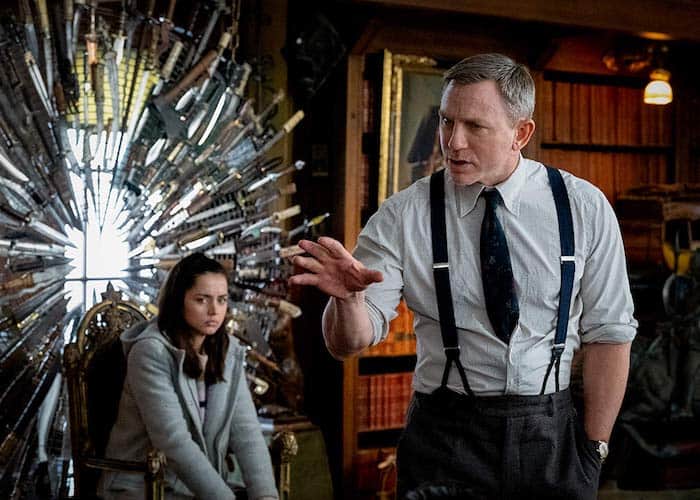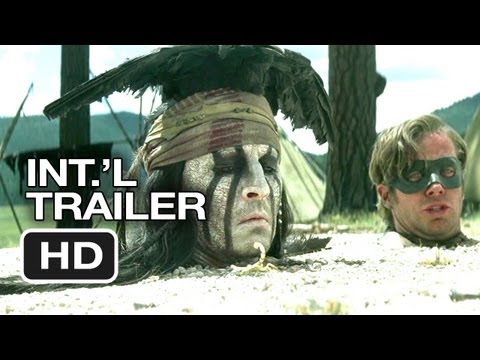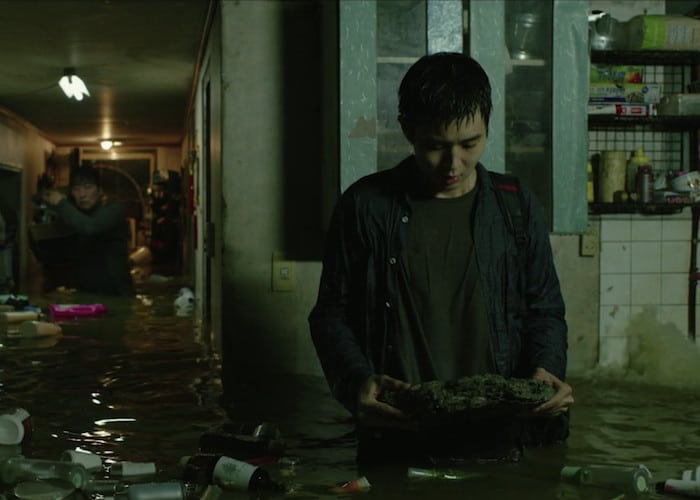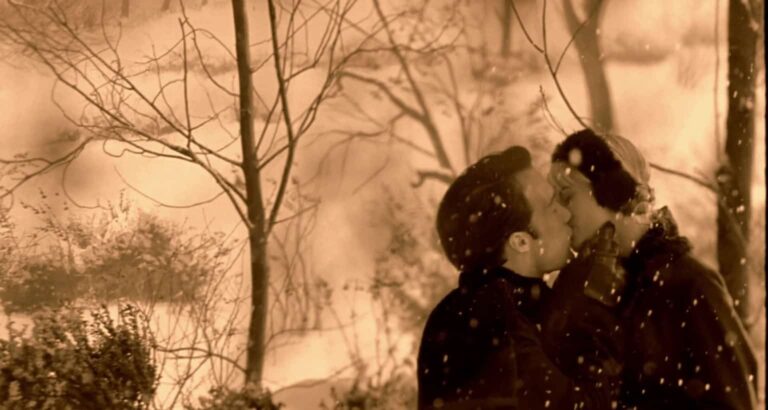“Trying To Understand My Character’s Journey Was Difficult”: Interview With Alyy Khan, Star Of MOGUL MOWGLI & THE SERPENT
Alyy Khan has had an eclectic career, working across Hollywood, Bollywood, and Lollywood – there’s a chance you’ll recognise him somewhere, for he has no prejudices towards industries and mediums and has played an astonishing range of characters, acting across some of the world’s biggest movie stars. Lately, he can be seen in the BIFA-nominated drama Mogul Mowgli in the major role of Bashir, a modest father carrying the ghosts of Pakistan’s past. The complex familial bond between him and his son, Zaheer aka Zed (Riz Ahmed), a rapper on the verge of a huge breakthrough, is the focal point of this stirring film about cultural identity and inherited trauma.
On the silver screen, he can be seen in BBC’s thrilling serial killer biopic The Serpent in which he inhabits the role of Sergeant Detective Naranda Nath Tuli, Delhi’s leading authority in the search for the Hippie Trail murderer Charles Sobhraj (Tahar Rahim). In parallel to the broadcast of The Serpent and in anticipation of the BFI’s Blu-ray release of Mogul Mowgli, Film Inquiry spoke to Khan about finding these projects and working with Ahmed and Rahim, rendering Bashir and his interpretation of Mogul Mowgli, his memories of making a similar British-Asian film ten years ago, and his thoughts on artistic collaborations between Pakistan and India. He also gives us a major scoop on what he’s working on next.
Musanna Ahmed for Film Inquiry: You have two projects that are capturing the British audience’s attention right now, Mogul Mowgli, and The Serpent. Could you tell us how the journey began for you with these two projects?
Alyy Khan: I’m an actor living in Pakistan. I’ve had the same agent for several years, right from the time I used to live in India and started off with Sharpe’s Challenge, A Mighty Heart, and everything else. Through the regular channels, I was asked if I was interested in reading the script for Mogul Mowgli. Once I found out who was attached to it, obviously that made it all the more special because I’m a big fan. I’d been following Riz‘s work and had heard great things about the director, Bassam Tariq. Once the script came my way, it was the usual audition process. Once they approved my audition, we started a similar dialogue on Zoom or FaceTime. Bassam was in London, I was here on a different set finishing some TV work. After the first few initial conversations, I was very keen to do it. They said, “Come over and let’s do this.” We came to London a week in advance to do some rehearsal and fittings and then said “Bismillah” and got on with production.
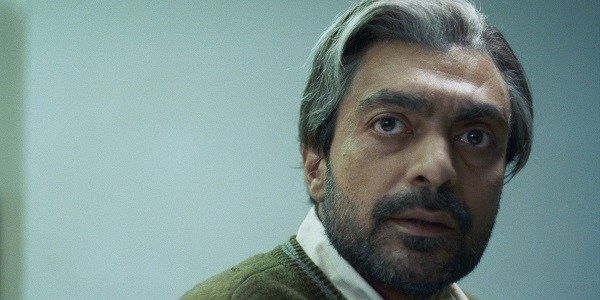
How about The Serpent?
Alyy Khan: The Serpent was similar. Living in Pakistan is good because obviously other than the fact that I’ve lived in the subcontinent for most of my life, I’ve been able to frequently visit England. I lived there for five years. My kids live here with me and I’d like them to have a bit of a desi upbringing. It was always clear to me and my agent that after spending some years in England, I would relocate here, and I would self-tape for auditions around the world. Whenever something interesting comes up, I’m fortunate to have the option of self-taping. My wife shoots me or my kids shoot me and one of them cues me, and then we send the audition back up, aur agar bhaat bhanti hai (and if we establish a dialogue) then we pursue it further. The Serpent came about exactly like that. I was here and I was asked to audition for one of the characters and that’s how it came about really.
Mogul Mowgli is obviously very personal for Riz Ahmed, based on his own parallels with the characters here, and perhaps for yourself too, immigrating from the subcontinent to here. I have to imagine that drawing the character of Bashir is a mix of imagination and real life. Could you tell us about your process of finding the character?
Alyy Khan: I think when you say it’s a very personal story for Riz, I agree with that. Not just for him but also for Bassam, the director. I think it was a collaboration and they both brought a lot of their personal experiences into the script. The strange part of it for me is as a human being, as Alyy Khan, is that I haven’t suffered any of the insecurities that are discussed in the film, whether from a migratory part point of view or from a Brown person’s point of view living in the West. I haven’t necessarily suffered those insecurities or those slurs.
I’ve always been there on holiday, come back as a kid when I was there for a couple of years, maybe bullied a little bit in school or whatever, but those are things of the past. Secondly, I think the age that Bashir is acting in the film is supposed to be much older than my real age. Again, I haven’t had the experience of any of the scars that our parents’ generation or really our grandparents’ generation lived through, because they’re the ones who actually witnessed the brutality of the heartbreak of partition. Also, 50, 70 years later, I don’t know how much of that is still as passionate as it was several years ago.
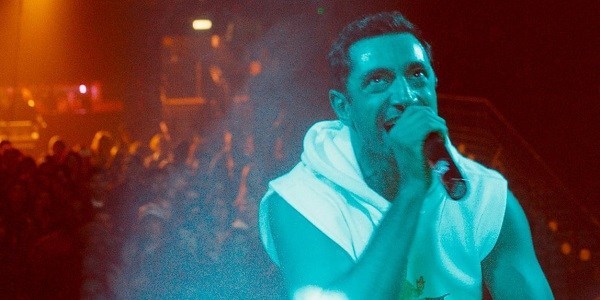
For me, trying to understand Bashir’s journey was difficult because Alyy Khan didn’t identify with that. I think what became more pertinent and interesting for me in the film or within the narrative was the journey Bashir has with his son because I have a 15-year old son and obviously as a father, I have more of a resource bank to tap into truthfully as opposed to Bashir’s esoteric journey because even that was a bit confused.
I find that with age older people also tend to become more childlike. It’s easier for them to forget stuff which stresses them as opposed to holding on to previous baggage. I really feel that Bashir has had so much else to think about in his life, especially moving into a new country and settling down. Not only becoming successful materially but also successful spiritually and also successful paternally, to be able to impress his son, which a lot of fathers are always trying to do. Trying to live up to an expectation and feel forced of all this pressure that’s put on them to be able to actually perform. I think all of that was pretty challenging.
What’s interesting to me is that even though Mogul Mowgli is a story of a Pakistani family and the familial relationship, it’s not the first time you’ve occupied this role in a diaspora movie. 10 years ago, I remember watching Everywhere and Nowhere, about a British-Pakistani lad who also wanted to be a musician. He wanted to be a DJ. It was one of the few films about British-Pakistanis I was acquainted with as a young film watcher. It feels like we have come far from then, when we didn’t even have enough Pakistani actors and directors to really make films including that one, which starred Tamil-English actor James Floyd and was directed by Bangladeshi-born Menhaj Huda. Could you compare it to Mogul Mowgli in terms of its depiction of similar cultural issues?
Alyy Khan: I played the elder brother of the lead character in that film and I remember him running out James Floyd‘s character in a cricket match when the brothers were battling each other. In that journey, there was insecurity between the two alpha males, so to speak. In Mogul Mowgli, that insecurity is not felt between the males because the father Bashir has pretty much led an inglorious type of life where he’s tried and he’s been diligent. He’s taken shelter behind the garb of spirituality, so to speak, which is very easy to do, especially for our parents once they become old and they can adopt this path when they don’t have to be materially responsible anymore. You’re right, on a level it’s also very similar because it discusses the same insecurities between families, whether between father and son or between siblings.
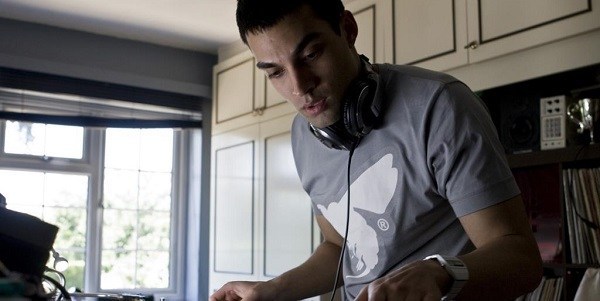
I think they are both about how blinkered the older generation has become compared to the younger generation who have been born and brought up in the West and how they wish to spread their wings and fly, while the older generation has not had that luxury. I think that’s really where it stems from, the discontent of, “You lot are luckier than us. You don’t know what it took to get you into this position. If I had the privilege of having the same university degree as you,” and all the rest of it.
I think Mogul Mowgli definitely goes deeper into exploring that theme. One of the ways in which it does so is through this enigmatic, visually obscured character of Toba Tek Singh, who haunts Zaheer throughout the movie and represents a host of different things depending on who you ask. Could you tell us your own personal interpretation of Toba Tek Singh?
Alyy Khan: “I love you.” I don’t know if Toba Tek Singh haunted Zaheer. I think the fact that it was the name of his one big track that he couldn’t actually perform and that another young rapper had to take over and that he actually had to let go. I think that’s what was revelatory about Toba Tek Singh and hence it’s almost a love ballad really, the relationship with his song represented in human form. But because he had to let it go, he’s still connected to it, he’s still passing on that love to the younger generation, having that continuity, which is when he can stop being visited by Toba Tek Singh. It’s about him ultimately knowing what is more important than selfishness. I think that’s what it represented.
With The Serpent and Mogul Mowgli, you’ve worked with two actors right now who the industry is speaking a lot about, Tahar Rahim and Riz Ahmed, in the context of awards.
Alyy Khan: Two Muslim boys, man. Fantastic. Alhamdulillah.
Alhamdulillah. What was your favorite experience of working with Riz and Tahar?
Alyy Khan: Just the passion and energy they brought to it. The humility, the non-starry vibe, the hunger to get it right. I think it was great because it wasn’t something they took for granted and they brought the same vibrancy and energy every day to work. Obviously, they were captains of the ship but they were generous in trying to share their craft and making sure that everyone was comfortable and tried to get the best out of everyone there. On The Serpent, Tahar worked nonstop and he worked a lot. The show got postponed because there was a bit of an incident on the set, one of the actors got injured and so we had to take a break to reschedule.
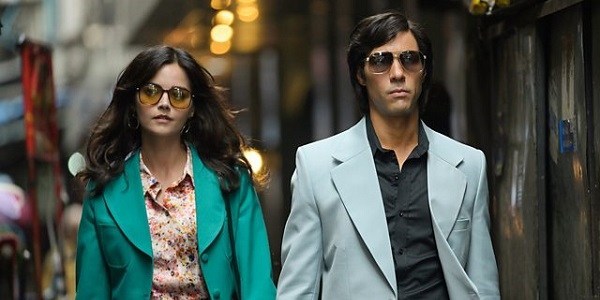
Tahar had committed to doing the film with Jodie Foster and Benedict Cumberbatch, for which he has been nominated [at the Golden Globes], The Mauritanian. He had to take off, get out of character, go film that, and come back. And obviously having done A Prophet, playing another prisoner required him to also to figure out how he would like to play it this time around. It wasn’t just a walk in the park, I’m sure you know. I was really privileged to work with both of them. I couldn’t have asked for anything better. Great representation, Mashallah.
I love seeing a film like Mogul Mowgli into existence, especially coming from a filmmaker like Bassam Tariq, who also made a documentary I really liked, These Birds Walk, about Pakistani characters. I’m finding that there are quite a few interesting independent Pakistani filmmakers emerging around the world, including Hamza Bangash, Afia Nathaniel, Minhal Baig, and Asim Abbasi. Is there anyone in particular who you are interested in working with?
Alyy Khan: These people were at the London Film Festival recently, weren’t they?
Yes, I believe some of them had films on the programme.
Alyy Khan: I think they were in Berlin with us last year as well. Yes, I’m interested in working with a bunch of talented youngsters, whether they’re from India or Pakistan or Sri Lanka or Bangladesh or whatever, I think everyone has a sensibility pertinent to the subcontinent. If a voice is needed then yes, for sure, I’m there. Also, you haven’t mentioned Sharmeen Obain-Chinoy, who’s about to direct Ms. Marvel. There’s so many interesting people who are working. At the moment, cinema in Pakistan is going through a bit of a hiccup because of the pandemic and cinemas being shut. We’re also going through an evolutionary phase where the cinema being created is more commercial but Inshallah, we’ll get there. There’s good potential for a lot of local talent so good things are coming.
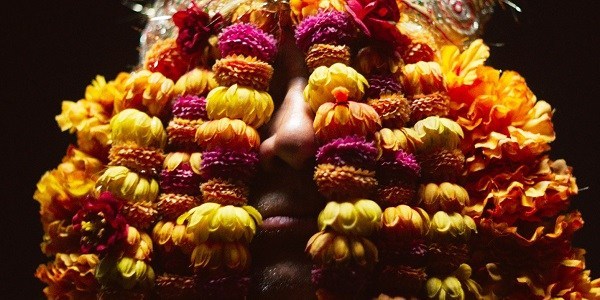
Maybe I’m opening up a fresh wound, but the whole ban on Pakistani artists in India feels unfair to me because it’s artists being affected by geopolitics. Do you ever foresee a harmony between India and Pakistan in the artistic realm anytime soon? I know Asim Abbasi made history recently by having his TV series Churails air in India, via the Indian VoD service ZEE5.
Alyy Khan: Not just Asim’s show but I believe five other series have gone to ZEE5, including Haseeb Hassan’s upcoming Dhoop Ki Deewar. I think the artistic collaboration or the love between artists still exists and, given an opportunity, that exchange back and forth would happen within the blink of an eye. Factors being as they are, I don’t think there would be an issue for Pakistani actors to work in Indian productions or the other way around outside of each of these countries.
If you did a joint production in Dubai, you would have a line of artists from both countries coming to try and play those parts. There’s just so much love and camaraderie between the two countries. These shows, Asim‘s show and all of the rest of the shows which are airing on ZEE5, stand testament to the fact that regardless of the political fervor in the country, audiences are still clamoring to watch Pakistani products. Hence they’re being commissioned.
That is the reality and that is the fact of the matter. It’s just a question of the time and the timing that needs to be right and Inshallah, things will return to normal. It’s not just for artists, it’s also for cricketers, for example. It’s also for anyone related to the fine arts: exhibitions have stopped, music shows have stopped, exchange of cultural activities have stopped, mushaira, poetry readings, literature festivals, etc. I went to the Pakistani High Commission in New Delhi one year to get a visa and I saw a bunch of young Indians student there. I asked them what they were doing and I learned that they had all come to study medicine in Azad Kashmir, in Muzaffarabad. There’s so much stuff that happens back and forth, all of which is, at the moment, in dire straits really, which is so unnecessary. So yes, fingers crossed for a better future.
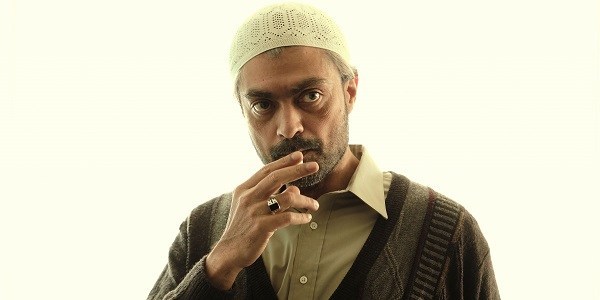
It’s been a pleasure chatting to you and I just have one more question – can you tell us about anything you’re currently working on or have signed up to do?
Alyy Khan: A couple of interesting things. I’m hoping to be traveling to do the Marvel gig soon. Other than that The Serpent is still on air, so do try and watch and enjoy that.
A Marvel gig? Could you tell us more?
Alyy Khan: The Ms. Marvel gig with Sharmeen Obaid-Chinoy.
Oh yes, the Ms. Marvel TV series coming to Disney+. I’m really excited for it. It’s about time, I think.
Alyy Khan: Yes, it should be fun. [chuckles] I was keen to be a part of that, so let’s see what happens. Travelling to Thailand and big quarantine periods, the world is still a bit of a mess right now but fingers crossed we can move around soon.
Inshallah, I hope for the best. Thank you so much for talking to me.
Alyy Khan: Thank you Musanna, and all the best. Good chatting with you.
This interview has been edited for clarity. Film Inquiry thanks Alyy Khan for speaking with us and Sanam Hassan for organising the interview.
Mogul Mowgli is currently exclusively available on BFI Player Subscription and will be released on Blu-ray by the BFI on 22 Feb.
The Serpent is now available to view on BBC iPlayer.
Does content like this matter to you?
Become a Member and support film journalism. Unlock access to all of Film Inquiry`s great articles. Join a community of like-minded readers who are passionate about cinema – get access to our private members Network, give back to independent filmmakers, and more.
Join now!
